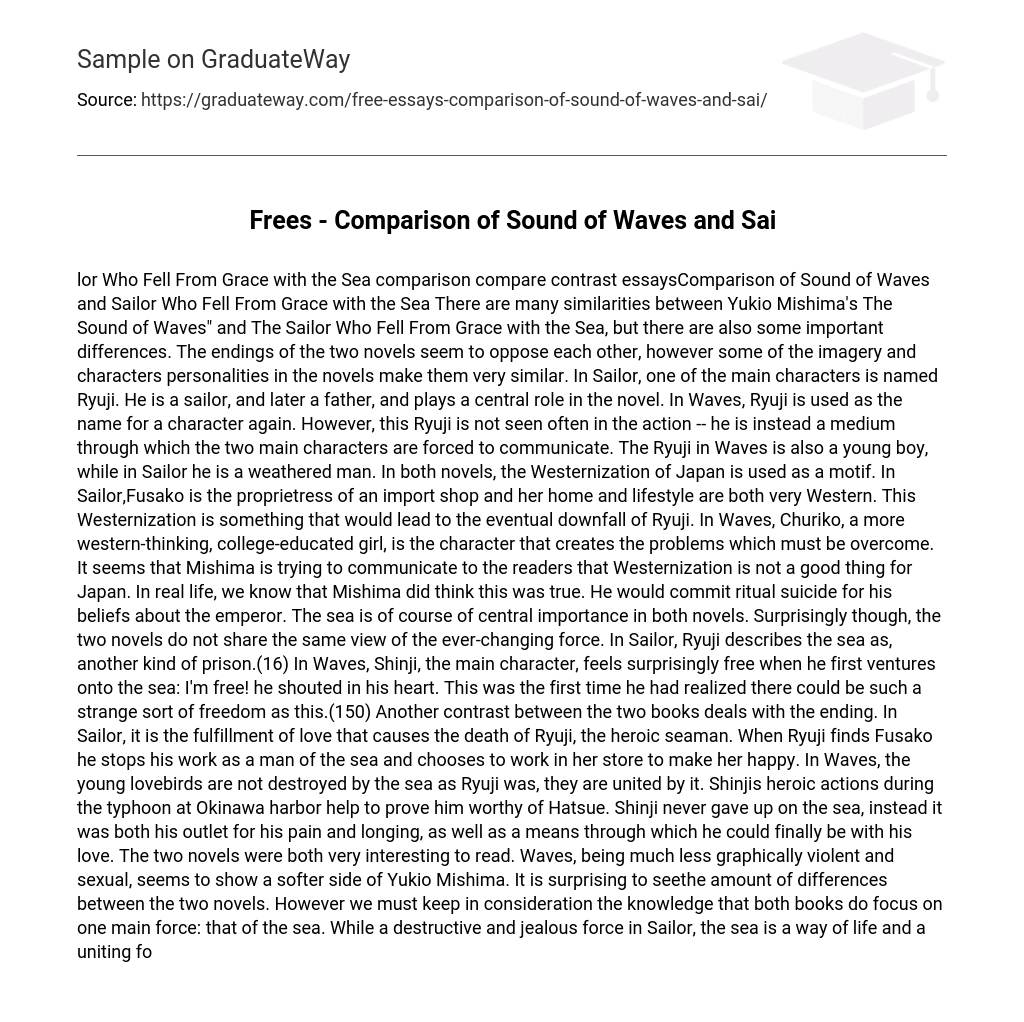Both “The Sound of Waves” by Yukio Mishima and “The Sailor Who Fell From Grace with the Sea” share several similarities, yet they also possess notable differences. While the endings of the two novels appear to contradict each other, certain imagery and character traits found within the books establish a strong connection between them. For instance, both novels feature a character named Ryuji who plays a significant role; he is initially portrayed as a sailor, eventually becoming a father. Additionally, “The Sound of Waves” also includes a character named Ryuji.
However, Ryuji plays a limited active role and serves as a conduit for communication between the main characters. In Waves, he is depicted as a young boy, while in Sailor, he is portrayed as a weathered man. The novels use the theme of Westernization in Japan. In Sailor, Fusako owns an import shop and embraces a Western lifestyle, which ultimately contributes to Ryuji’s downfall.
In the novel Waves, Churiko is portrayed as a college-educated girl who has a more westernized mindset. She serves as the catalyst for the problems that the characters need to overcome. This suggests that Mishima is trying to convey the message that Westernization is not beneficial for Japan, reflecting his own beliefs which he was willing to die for by committing ritual suicide for his convictions regarding the emperor. Both novels place significant importance on the sea, but interestingly, they have contrasting perspectives on its dynamic nature. In Sailor, Ryuji characterizes the sea as “another kind of prison”.(16)
In the novel Waves, the protagonist Shinji experiences an unexpected sense of liberation when he embarks on the ocean for the first time: “I’m free!” he exclaimed internally. This was the first instance where he realized the possibility of such a peculiar form of freedom (150). Conversely, Sailor presents a different contrast in terms of its conclusion. It is the consummation of love that ultimately leads to the demise of Ryuji, the valiant sailor.
When Ryuji locates Fusako, he abandons his occupation as a seaman and opts to work in her store in order to bring her joy. In Waves, the youthful couple is not devastated by the sea like Ryuji, but they come together because of it. Shinji’s brave deeds during the typhoon at Okinawa harbor establish his worthiness for Hatsue. Shinji never relinquished his connection to the sea; instead, it became an outlet for his suffering and yearning, as well as a pathway to ultimately be with his beloved.
Both novels, despite their differences, were equally captivating. Waves, in particular, presents a gentler aspect of Yukio Mishima, as it contains minimal graphic violence and sexuality. The contrast between the two novels is truly astonishing.
However, it is essential to consider that both books focus on the sea as a primary force. In Sailor, the sea is portrayed as a destructive and jealous force, whereas in Waves, it is depicted as both a way of life and a unifying force.





